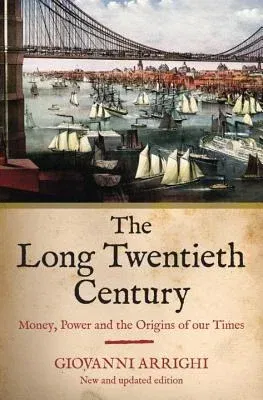Giovanni Arrighi
(Author)The Long Twentieth Century: Money, Power and the Origins of Our Times (Updated)Paperback - Updated, 1 February 2010

Qty
1
Turbo
Ships in 2 - 3 days
Only 4 left
Free Delivery
Cash on Delivery
15 Days
Free Returns
Secure Checkout

Print Length
432 pages
Language
English
Publisher
Verso
Date Published
1 Feb 2010
ISBN-10
1844673049
ISBN-13
9781844673049
Description
Product Details
Author:
Book Edition:
Updated
Book Format:
Paperback
Country of Origin:
GB
Date Published:
1 February 2010
Dimensions:
23.11 x
15.24 x
3.05 cm
Genre:
20th Century
ISBN-10:
1844673049
ISBN-13:
9781844673049
Language:
English
Location:
London, England
Pages:
432
Publisher:
Weight:
476.27 gm